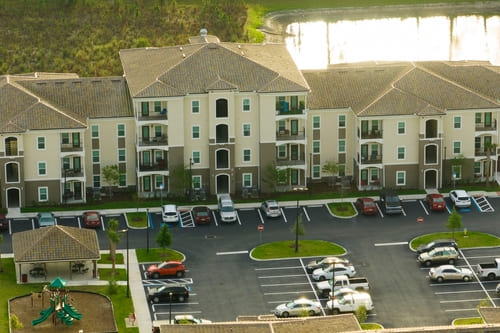How Can Affordable Housing Laws Affect Real Estate Developers?

Affordable housing laws play a crucial role in shaping residential development projects. These laws aim to ensure that housing is accessible to people of varying income levels, but they can also present challenges and opportunities for developers. Understanding the requirements and navigating the complexities of affordable housing regulations are essential for the successful completion of residential projects. An attorney with experience in real estate law can provide guidance and legal representation for developers, helping them understand their options and ensuring that they meet their legal requirements.
Requirements for Developers
Real estate developers must comply with several key requirements when planning residential development projects that include affordable housing components. These requirements can vary based on local ordinances and state laws, but they generally include:
- Inclusionary zoning: Some zoning laws may mandate that a certain percentage of new residential units be designated as affordable housing. This means that developers must include a mix of market-rate and affordable units within their projects. The specific percentage can vary, but it often ranges from 10 to 20 percent.
- Density bonuses: To incentivize the creation of affordable housing, some jurisdictions offer bonuses that allow developers to build more units than typically permitted by zoning laws if they include a specified number of affordable units. This can increase the overall profitability of a project.
- Subsidies and tax incentives: Developers may be eligible for incentives if they incorporate affordable housing into their projects. This can help offset the costs associated with lower rental or sale prices for affordable units.
- Compliance monitoring: Developers must ensure ongoing compliance with affordable housing requirements, which may involve regular reporting and inspections. Failure to meet these requirements can result in penalties or the loss of incentives.
Challenges Faced by Developers
Meeting affordable housing requirements can present several challenges for real estate developers, including:
- Increased costs: Incorporating affordable units into a development can increase the overall costs of a project. These additional expenses may arise from construction requirements, lower rental or sale income from affordable units, and the administrative burden of compliance.
- Financing difficulties: Securing financing for projects that include affordable housing can be more challenging. Lenders may view these projects as higher risk due to the potentially lower returns on investment.
- Regulatory complexity: Navigating the complex web of local, state, and federal affordable housing regulations can be daunting. Each jurisdiction may have different rules and requirements, making it difficult for developers to ensure full compliance.
- Community opposition: Affordable housing projects can sometimes face opposition from community members who are concerned about property values, neighborhood character, or increased density. Developers may need to engage with the community to address these concerns and gain support for their projects.
Steps to Help Ensure That Development Projects Will Be Successful
Despite challenges related to affordable housing, developers can take several steps to ensure that their projects are successful while meeting their legal requirements:
- Early planning: Developers should incorporate affordable housing considerations into the earliest stages of project planning. This includes understanding local regulations, identifying potential incentives, and conducting feasibility studies to assess the impact on project costs and returns.
- Collaboration with experts: Developers can work with architects, planners, and other professionals who are knowledgeable about affordable housing laws and best practices. These experts can help navigate regulatory complexities and other related issues.
- Engage with the community: A developer can proactively engage with community stakeholders to build support for a project. Transparent communication and responses to people’s concerns can mitigate opposition and foster a positive relationship with the community.
- Explore funding options: A developer may be able to seek out diverse funding sources, including government grants, tax credits, and private investors who are interested in supporting affordable housing. This can help bridge financing gaps and make a project more viable.
- Monitor compliance: Developers should implement robust compliance monitoring systems to ensure ongoing adherence to affordable housing requirements. It is important to regularly review and update processes to address regulatory changes.
Contact Our DuPage County, IL Real Estate Development Attorney
Navigating affordable housing laws is a complex but essential aspect of real estate development in DuPage County. To receive legal guidance and support with these issues and other concerns that may affect development projects, contact the Naperville, IL real estate lawyer at the Gierach Law Firm. Call us at 630-756-1160 to schedule a consultation and learn more about how we can assist with your development needs.
Practice Areas
Archive
+2018
+2016
Please note: These blogs have been created over a period of time and laws and information can change. For the most current information on a topic you are interested in please seek proper legal counsel.














